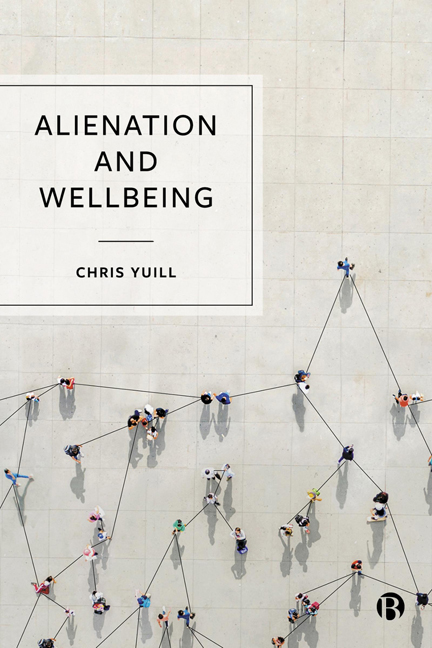Book contents
- Frontmatter
- Dedication
- Contents
- Acknowledgements
- Preface
- 1 What Is Alienation?
- 2 Responding to Criticisms of Alienation Theory
- 3 Alienation and Wellbeing
- 4 Case Study: Social Workers, the Compassionate Self and Disappointed Jugglers
- 5 Is Alienation Theory Still Relevant?
- 6 Beyond Alienation?
- References
- Index
2 - Responding to Criticisms of Alienation Theory
Published online by Cambridge University Press: 27 March 2024
- Frontmatter
- Dedication
- Contents
- Acknowledgements
- Preface
- 1 What Is Alienation?
- 2 Responding to Criticisms of Alienation Theory
- 3 Alienation and Wellbeing
- 4 Case Study: Social Workers, the Compassionate Self and Disappointed Jugglers
- 5 Is Alienation Theory Still Relevant?
- 6 Beyond Alienation?
- References
- Index
Summary
Introduction
A great deal of time has elapsed since Marx first laid down his ideas on alienation in the Economic and Philosophic Manuscripts in 1844. A considerable volume of scholarship, theorization and empirical work on Marx and alienation has occurred since then, alongside various waves of theories and other work within the social sciences. Different theories and philosophies have raised interesting and challenging questions for how Marx understood alienation. Post-structuralism and post-modernism have posed questions as to what it is to be human. In those philosophies (and I am speaking very broadly here) any reference to some form of essence, a human nature, was eschewed for a fluid relative subjectivity that emerges from discourses and technologies of power. Essentialism is now a cardinal sin, to the point of it being ‘a dirty word in the academy’ according to Nussbaum (1992: 205). Anything that hints of some form of fixity or essence is automatically deigned to be faulty. The accusation of essentialism can be levelled against alienation theory, and, given the prominence I placed on human nature in Chapter 1, that charge requires a response. More recently, post-humanism and neo-materialism have queried the relationship between humans and nature, alongside the modernist impulse to privilege and centre humans (and a White, heterosexual, able-bodied, cis-male human at that) in understanding societies or environmental change. Those perspectives have sought to reorientate nature, from a passive inert entity that does nothing without human input to one that possess its own agential potentials. Those are good points and again require a response.
The challenges to alienation theory I just mentioned sit outside the Marxist tradition. Challenges also exist from within the Marxist literature as well. The intervention of Althusser and his project to rid Marxism of any of what he regarded as the damaging vestiges of Feuerbachian Humanism is the obvious one. He claimed, borrowing from Bachelard, that an ‘epistemological break’ exists in Marx. This break occurs in 1845 when the focus of Marx’s problematic shifts from a focus on the damage visited by capitalism on a human essence to a problematic concerned with the relations and means of production. The break has consequences for alienation theory.
- Type
- Chapter
- Information
- Alienation and Wellbeing , pp. 30 - 63Publisher: Bristol University PressPrint publication year: 2023

